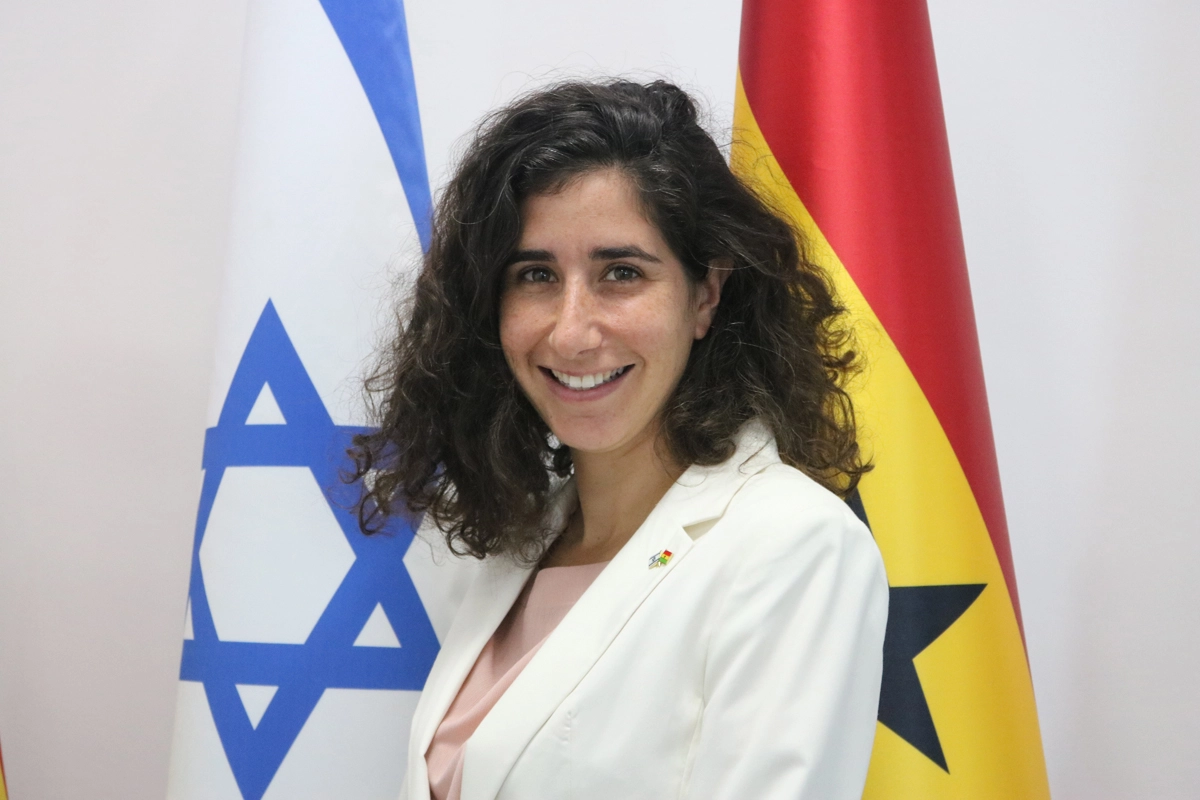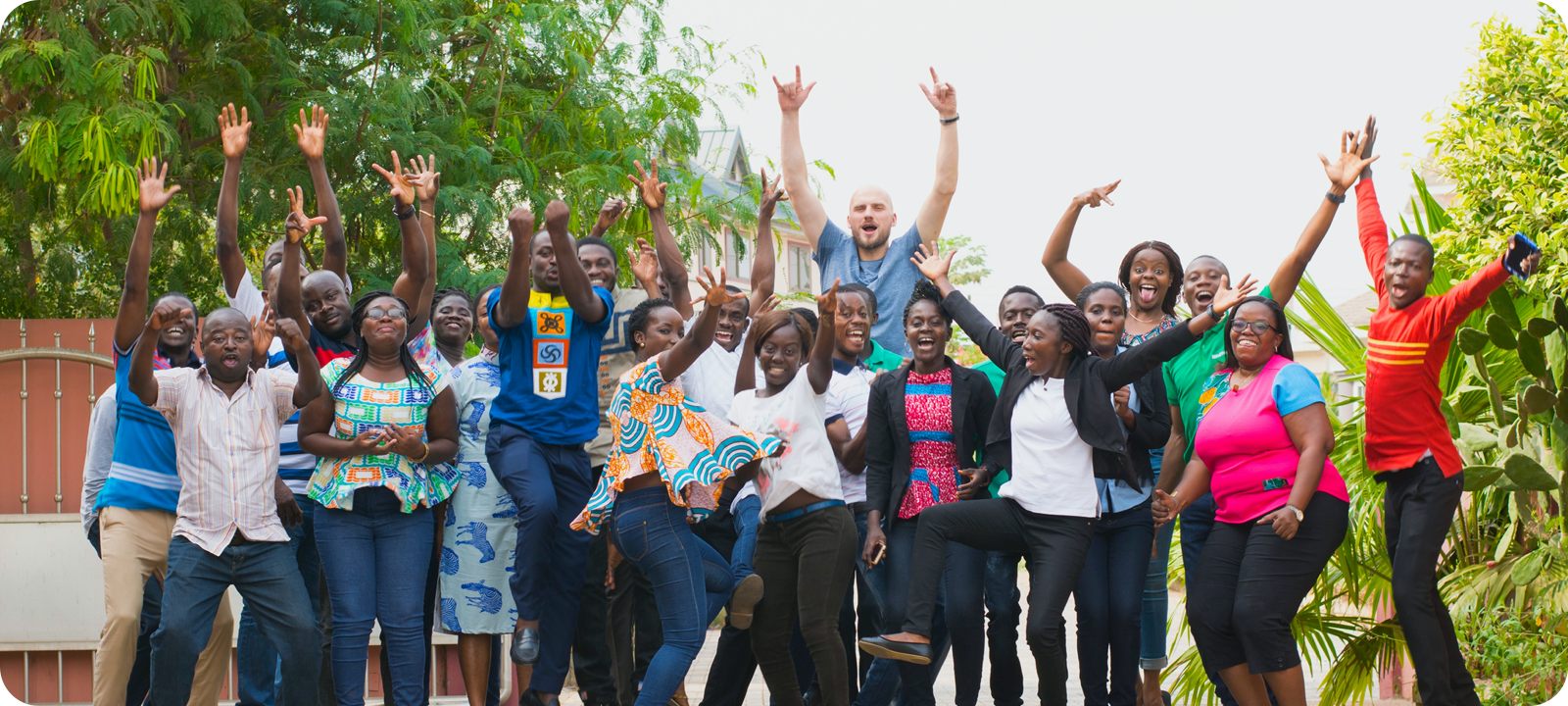Through this forum, the Israeli Trade and Economic Mission desires to partner with the government of Ghana and other relevant stakeholders to promote the use of innovative fertilizers, soil inoculants, best soil practices, and influence policy formulation in agriculture production by sharing the Israeli expertise and technological know-how.
Given the global rise in fertilizer prices, it is an opportune time to work together with various stakeholders, researchers, and leading experts to explore ways in increasing long-term efficiency and effectivity of soil inputs in Ghana, in order to raise yields and profits for Ghanaian farmers.
Recent years have seen an increased awareness in Israel, by both farmers and policymakers, of the importance of employing Conservation Agriculture (CA) practices to prevent further degradation of the country’s soil resources, and thus to secure local fresh food production and export. Common CA measures employed in Israeli-cultivated fields include minimum- or no-tillage to minimise soil disturbance; periodical addition of manure to enhance fertilisation and carbon stock; and use of service crops to maintain soil cover.
Through intensive Research and Development (R&D), several Israeli institutions have developed some of the world’s most innovative types of fertiliser and soil inoculants for all kinds of soil types and plants that increase yields and protects the soil. For the past 10 years, Deshen Hetzafon has developed a variety of smart fertiliser compounds – solid, soluble, granular or liquid fertilisers, bio-stimulants and micronutrients – all manufactured with adjustment to the way the minerals are absorbed by the plant from the root system or foliage. There is also Groundwork BioAg, which leverages on the natural power of mycorrhizal fungi to improve the productivity, sustainability and profitability of commercial agriculture and expand regenerative agriculture practices.
Recent years have seen an increased awareness in Israel, by both farmers and policymakers, to the importance of employing Conservation Agriculture (CA) practices to prevent further degradation of the country’s soil resources, and thus to secure local fresh food production and export. Common CA measures employed in Israeli cultivated fields include minimum- or no-tillage to minimize soil disturbance, periodical addition of manure to enhance fertilization and carbon stock and use of service crops to maintain soil cover. Ayelet Levin-Karp, Head of Trade and Economic Mission, Embassy of Israel, Accra.
Through intensive Research and Development (R&D), several Israeli institutions have developed some of the world’s most innovative types of fertilizers and soil inoculants for all kinds of soil types and plants that increase yields and protects the soil.
Highlights
ASASE: A landscape approach to supporting sustainable cocoa
The project is called ASASE, stands for Accessible Soils and Sustainable Environments and also means "land" in the local Ghanaian language Twi.- At the end of last 2020, the public sector, private sector and civil society organization partners jointly began the inception phase of this project, working towards a climate-smart cocoa sector where forests and natural ecosystems can thrive alongside sustainable cocoa production.
- Over the next four years, this 2.3 million Euro project funded by the Netherlands Enterprise Agency (RVO), Export Trading Group (ETG), and chocolate makers, will work with 5,000 farmers in Ghana's Ashanti and Eastern regions to tackle deforestation, rehabilitate aging cocoa farms, and restore natural forests.
- Natural forests capture carbon dioxide, increase biodiversity, and improve soil quality, providing ecosystem services that entire communities benefit from. For Ghana's 800,000 cocoa-farming households however, the country's high risk of deforestation brings with it the threat of lower, less reliable rainfall and rising temperatures that could damage cocoa trees, reducing yields and household incomes.
 Fertilizer Research and Responsible Implementation (FERARI)
Fertilizer Research and Responsible Implementation (FERARI)
- The overall objective of the program is to develop the evidence base for the need of a systematic approach to support widespread adoption of balanced fertilizers by farmers in the less developed markets of sub-Saharan African countries, specifically Ghana, as a means to improve their food and nutrition security.
- FERARI activities run from 2019 to 2024 and are co-funded by OCP, Mohammed VI Polytechnic University (UM6P), IFDC, and other involved institutions.
Israeli companies
For the past 10 years, Deshen Hetzafon has developed a variety of smart fertilizer compounds – solid, soluble, granular, or liquid fertilizers, bio-stimulants, and micronutrients – all manufactured with adjustment to the way the minerals are absorbed by the plant – from the root system or the foliage.
- Sheffa by Deshen Hatzafon was established in Israel in October, 2012 by 7 cooperative organizations representing 260 farming communities in Israel, that together own approximately 150,000 hectares of cultivated farmland.
- Product: HomiGreen Barak enriches the soil with organic material, encourages essential root activity, and: Improves the absorption of mineral ions; Increases chlorophyll production; Assists the plant in coping with extreme weather conditions; Increases reproduction; Based on soft water; Based on Humic and Fulvic Acids; Our Guarantee
There is also Groundwork BioAg, which leverages on the natural power of mycorrhizal fungi to improve the productivity, sustainability and profitability of commercial agriculture and expand regenerative agriculture practices.
- Groundwork BioAg produces highly-effective mycorrhizal inoculants for commercial agriculture. Containing concentrated and vigorous beneficial fungi, Rootella® inoculants significantly improve soil nutrient uptake in plants.
- The Groundwork BioAg products increase crop yields, improve resistance to several types of stress, and reduce fertilizer requirements. Groundwork BioAg has demonstrated significant yield increases in numerous major crops, including corn, soybean, sorghum, sugarcane, potato, and strawberry.
- Groundwork BioAg products are sold in major markets worldwide, including the USA, Brazil, Canada, India, Europe and Ukraine.
Related: Mycorrhizal fungi and inoculants
A soil without microbes is not complete, and can not become a self-sustaining ecosystem. With asymbiotic relationship that dates back 450 million years, mycorrhizal associations have evolved into a critical component of successful restoration projects across several continents.
- Mycorrhizal fungi make up over 90% of the living microbial biomass that is present in most soils.
- Mycorrhizal fungi make up over 90% of the living microbial biomass that is present in most soils. The picture provided details mycorrhizal hyphae connecting the fine root hairs to vast regions of the soil, where the hyphae transport carbohydrates to other beneficial microbes, particularly plant growth promoting Rhizobacteria (PGPR). The mycorrhiza fungus obtains the carbohydrates that it requires from the roots, and in return provides plant nutrients including nitrogen and moisture through the hyphal network.
- Mycorrhizal inoculant extend the grass roots deeper, improve the soil structure, and join plants together for easier maintenance and less watering. Healthy soil and soil biology can eventually eliminate weeds. Plants colonized with mycorrhizal fungi produce significantly larger root mass and are therefore more capable of handling stress from drought, pathogen attacks, and other forms of environmental stress. Mycorrhizal plants have access to more volume, and therefore more moisture compared to plants that are not colonized by mycorrhizal fungi.







No comments:
Post a Comment